Editor’s Note: This year, Life & Thyme participated in the Summit flagship event in Downtown Los Angeles. In addition to being involved in dinner and panel discussions, contributing writer, Oren Peleg, sat down with the folks behind the event to get some perspective on their new culinary programming.
The team at Summit likes to talk in grand terms. The events they host utilize “transformational platforms.” Their attendees are “thought-leaders.” The company’s ambitions are nothing shy of world-changing.
“Our goal is, to the best of our ability, expose this community of thought-leaders to the most pertinent wisdom of our time, and to things that are both on the bleeding edge and pushing us forward,” Jeff Rosenthal, a co-founder of Summit, tells me. “Our belief is by bringing those diverse inputs together, really complex and unlikely outputs occur.”
Since its founding in 2008, Summit has been creating gatherings for young entrepreneurs to meet and exchange ideas and resources. Summit’s various events include some combination of influential speakers (which, for 2018, included Al Gore, Howard Schultz and Janine Benyus), art installations (Jenny Holzer, Faith XLVII), musical performances (Haim, Chromeo, Bedouin), full meal services, and plenty of wellness programs from morning yoga to a tobacco cleanse by a Záparo dream shaman.
Over the past decade, Summit has grown to host regular events in Tulum and Kenya, local meet-ups in cities like San Francisco, Miami and New York, and their annual flagship event: a three-day festival that has taken place in Downtown Los Angeles since 2017. In addition, the Summit team purchased Powder Mountain (an actual mountaintop in Utah) where they host the Summit Mountain series, and plan to build a resort community based around the company’s values. This ambition and impressive roster of attendees (both speakers and members), has earned it the nickname “Davos for Millennials.”
“The tagline is Make No Small Plans,” Joey Rubin, who has partnered with Summit since 2010, says of the company’s philosophy. “It’s built on a culture of ambition, and it’s super magnetic for people who want to build ridiculous shit.”
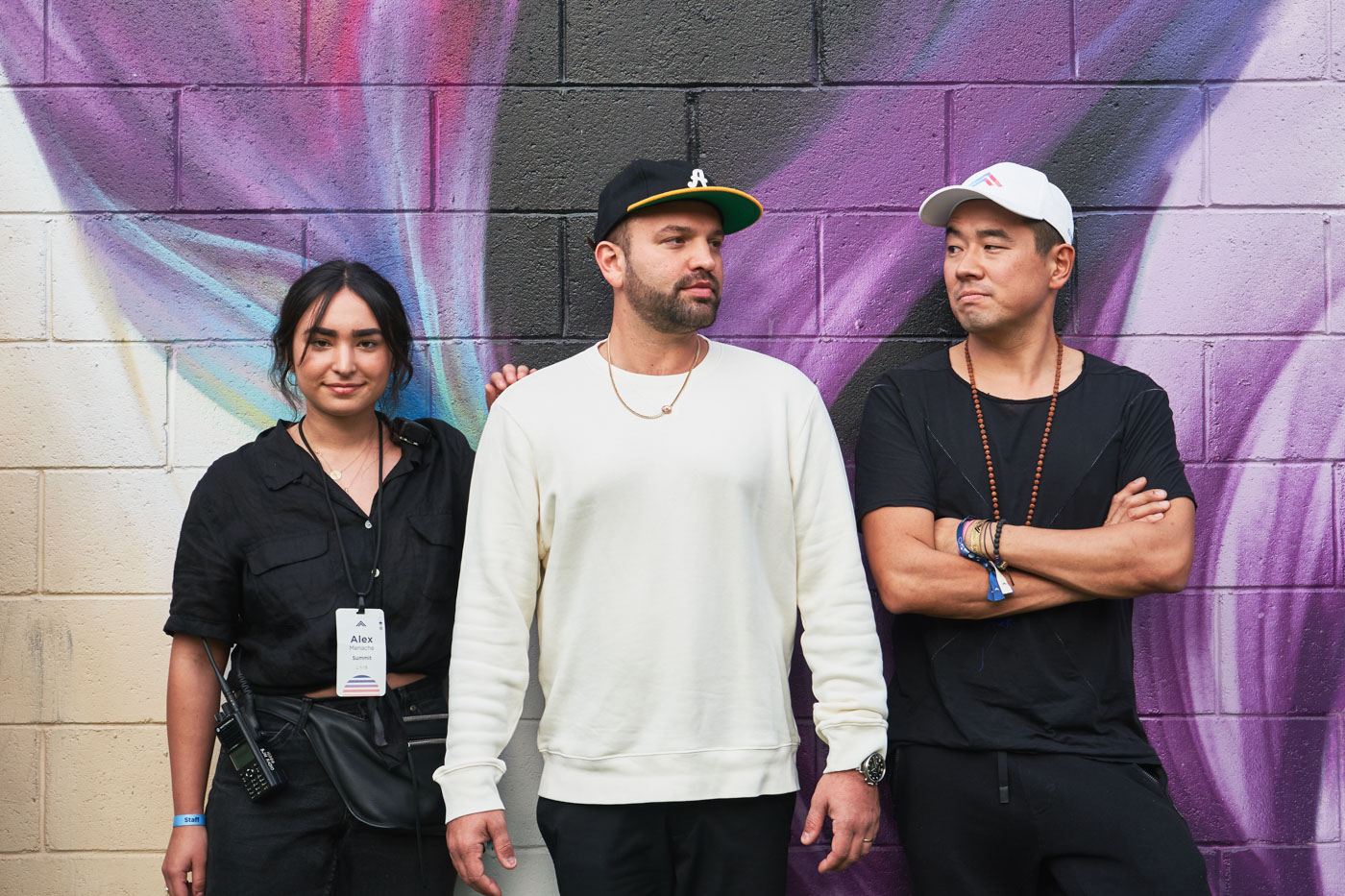
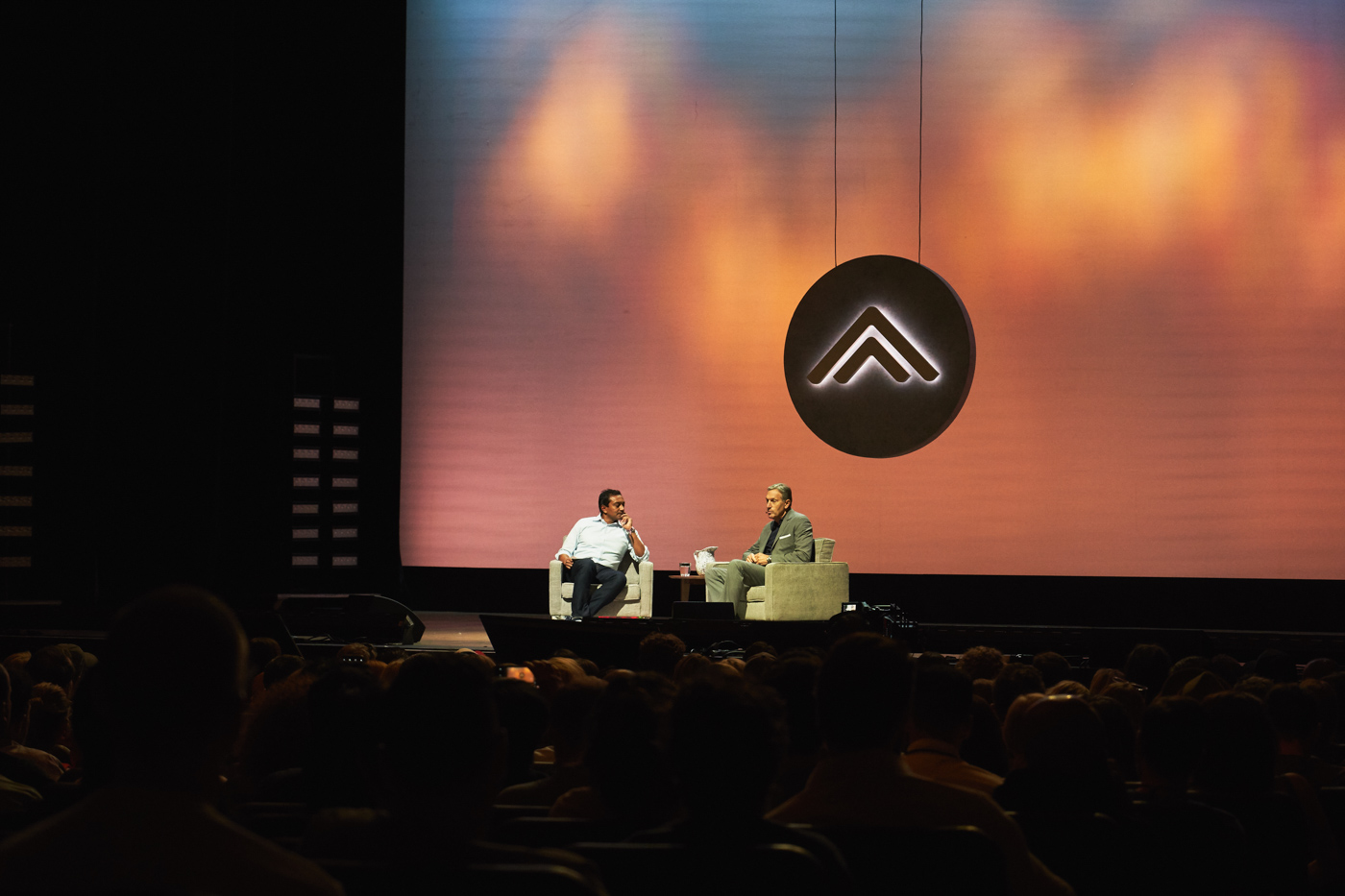
Rubin fell into the Summit orbit by sheer chance in 2009. He spent a few years coming up in the nightlife and underground dinner party scene of New York City when one night, “A DJ friend of mine asked me to put on a nice jacket and bring him a set of headphones to an address in the West Village,” he tells me. What he walked into was a Summit after-party for an event honoring Bill Clinton at the home of billionaire Sean Parker.
Within a few months, Rubin began working with the Summit team on their 2010 flagship event, then stayed connected with them as he took on an adjunct hospitality role. But after years of working with the festival, he realized a gap in Summit’s potential: meals and hospitality were an afterthought.
Rubin wasn’t alone in spotting this missed opportunity. Alex Menache—who had coincidentally interned with Rubin while she was in college—was new to Summit’s team in 2017, but she already saw room for growth.
“I noticed the numbers for dinner were dropping off [night after night], and precipitously on the night Joey threw his party,” Menache begins.
Rubin was running a private birthday party, unaffiliated with Summit, for PayPal co-founder Ken Howery. It was one of several unofficial satellite events that crop up every year during Summit’s flagship weekends. “We had two shuttle buses on a loop picking up people and bringing them to the [Los Angeles] Arts District,” Rubin says of the party, noting that some five hundred-plus people attended.
The consistent drop in dinner attendance, and the lure of outside events, were a signal to Menache that Summit’s approach to meals wasn’t working. Meals at the event were considered in logistical terms, rather than holistically or conceptually. During Summit 2017, eight restaurants near the event campus were bought out for dinner, and attendees would shuffle through on a first come, first served basis. No context or background was given to dinner, no efforts were made to tie the meals to any larger concepts, and no spotlight was placed on the chefs or their staff.
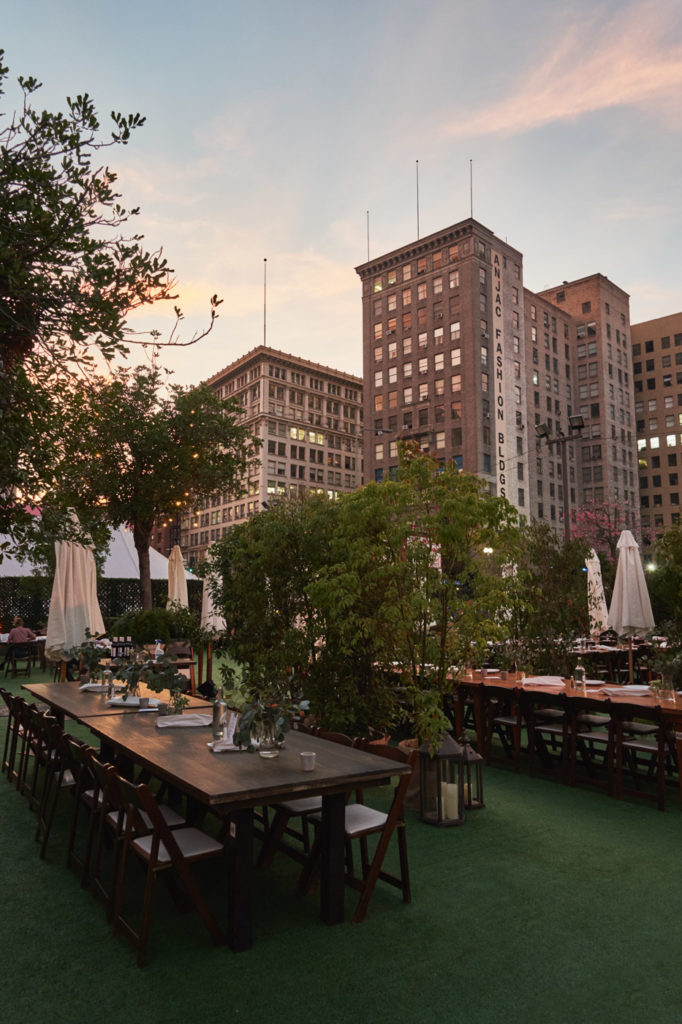
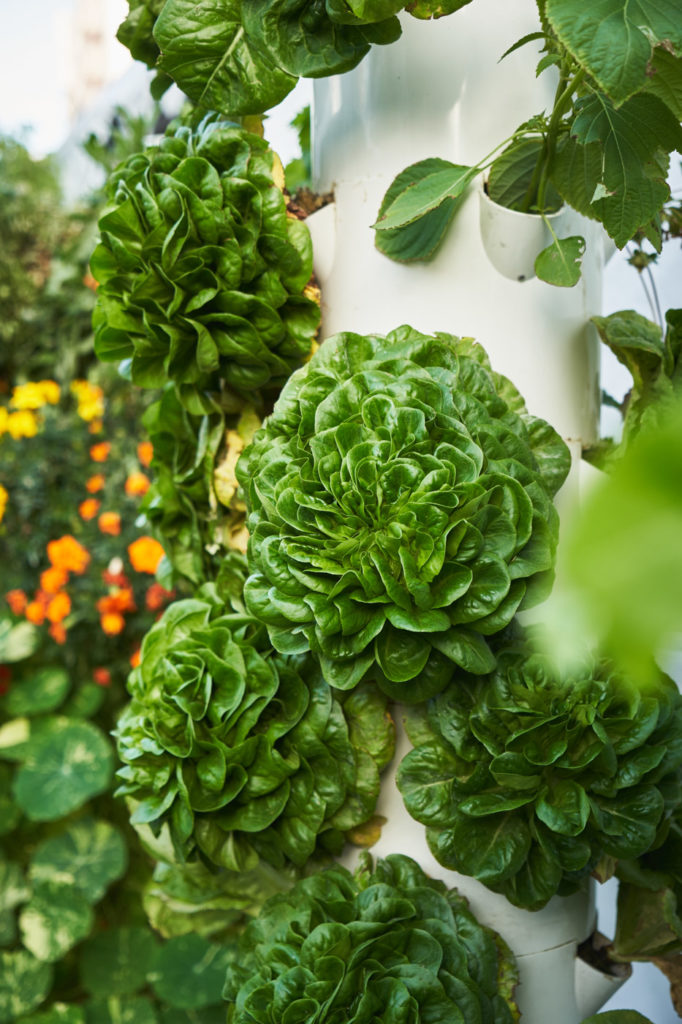
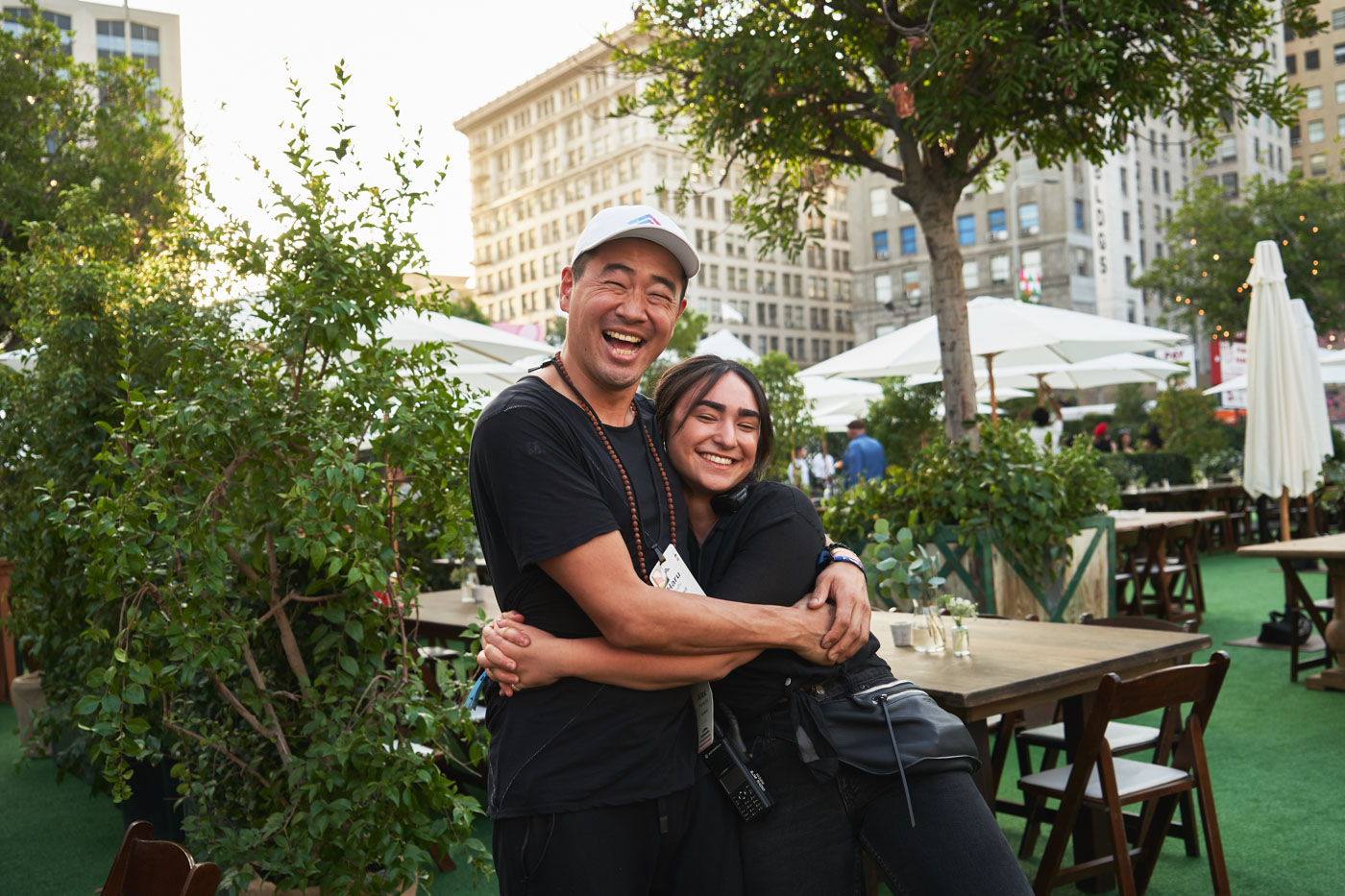
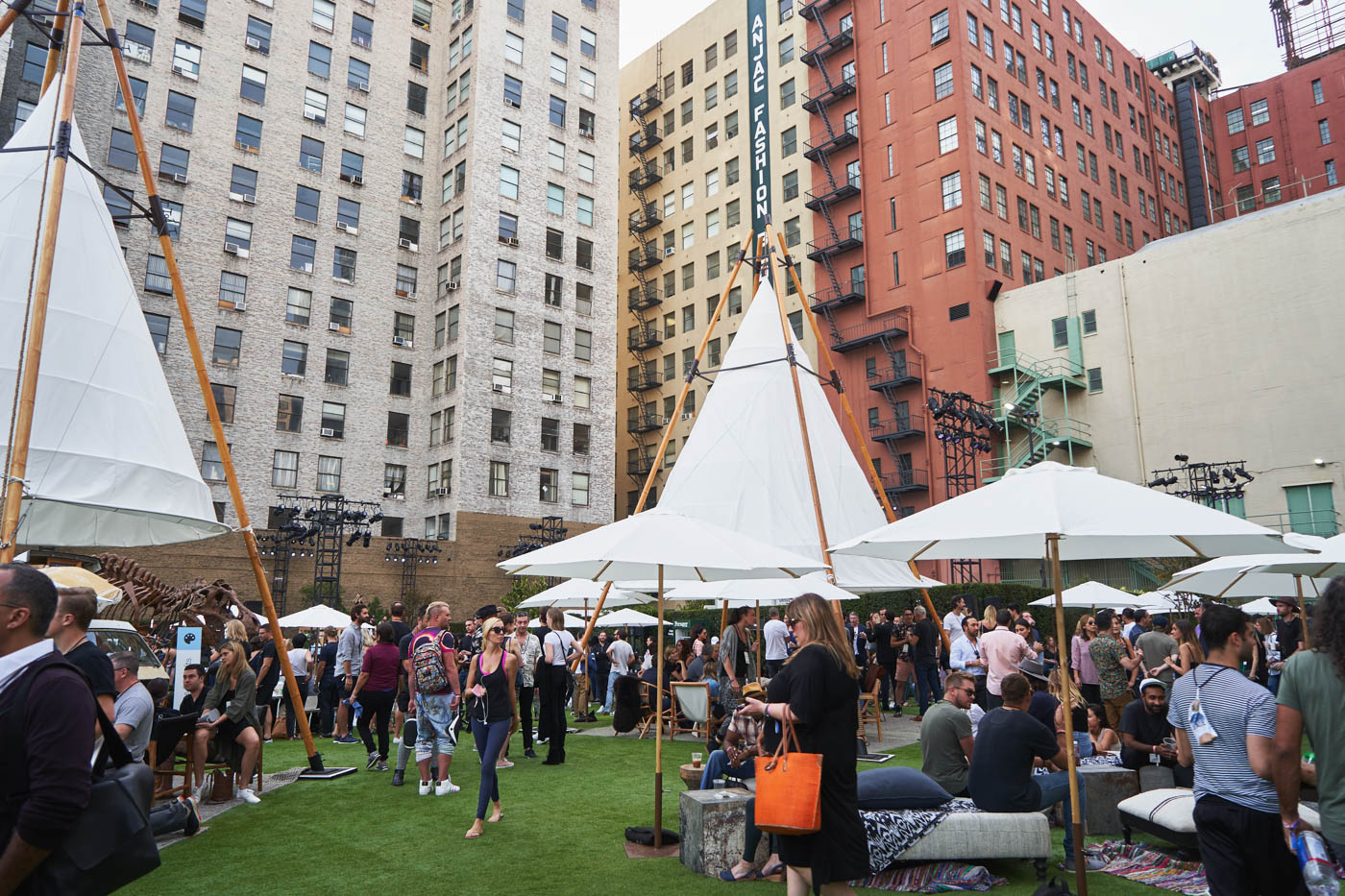
For Menache, who is quick to say “everything begins with food,” overlooking the guest experience was at odds with the mission of their events. For an organization with such vision as Summit, why not challenge and contextualize the larger food system through their meal services and content programming?
A few months after the 2017 event, Menache approached Rubin to get his feedback on the experience, and it became clear the two were aligned in vision. So, they turned around and pitched their plan to launch a Culinary vertical beginning at Summit’s 2018 flagship.
True to Summit’s motto, it was no small plan: Menache and Rubin’s new approach would suffuse the event’s food and beverage service and programming lineup. Breakfast, lunch and dinner would all have a purpose and a message. Workshops and panel discussions with topics ranging from climate change to immigration to #metoo would highlight an ethos and worldview that Rubin and Menache shared.
“It’s an ideas festival,” Menache continues. “Instead of just dinner here, we can view this as a session. Instead of a talk, it’s a certain idea that’s coming through a dinner service. We’re using a lot of the same infrastructure, and a lot of the same partners [for the 2018 event]; it’s just a different approach.”
Rubin explains it was important, “to bring hospitality to this event and create a premium hospitality experience.” He continues that Summit is in the unique position to connect food-world leaders directly with those in other major industries in the hope of “a more honest, direct dialogue” about the global food supply chain. “Food is power,” Rubin says. “Food is directly connected to our liberation and oppression as a people.”
“What Joey and Alex introduced this year, and something we’d never touched upon nearly to this level, was being incredibly incorporative of the community of creatives in the Los Angeles food and beverage [scene],” Rosenthal says. “Alex specifically had a huge impact on working with the twenty to thirty partners.” Those partners included vendors like Matcha Bar, Verve Coffee Roasters and Four Sigmatic, each of which provided free, full-service drink stations for attendees throughout the weekend. Restaurants like Alex Chang’s The Exchange were selected for dinner service as representatives of Los Angeles’ culinary prowess, while featured collaborations like the one between food scientist Andrey Ayrapetov and beverage brand Kin Euphorics created mood-enhancing cocktails with adaptogenic and nootropic chemicals at the weekend’s various after-parties.
As a headlining speaker for the inaugural culinary programming, chef José Andrés was brought in to discuss his non-profit’s disaster relief efforts around the world. Louis Tikaram, chef of E.P. & L.P. in West Hollywood, and Claudette Wilkins, chef of El Jardín in San Diego, were part of several events Summit ran in conjunction with Life & Thyme. Tikaram and Wilkins were part of a dinner series highlighting the talent in the documentary series, The Migrant Kitchen. “It was such an amazing experience to share my passion and story to so many like-minded people who truly care about where their food is coming from, and the journey of how it was created and cooked,” Tikaram says of the dinner. The two also joined panels discussing the immigrant experience in the food industry, and the changing landscape for women in the industry.
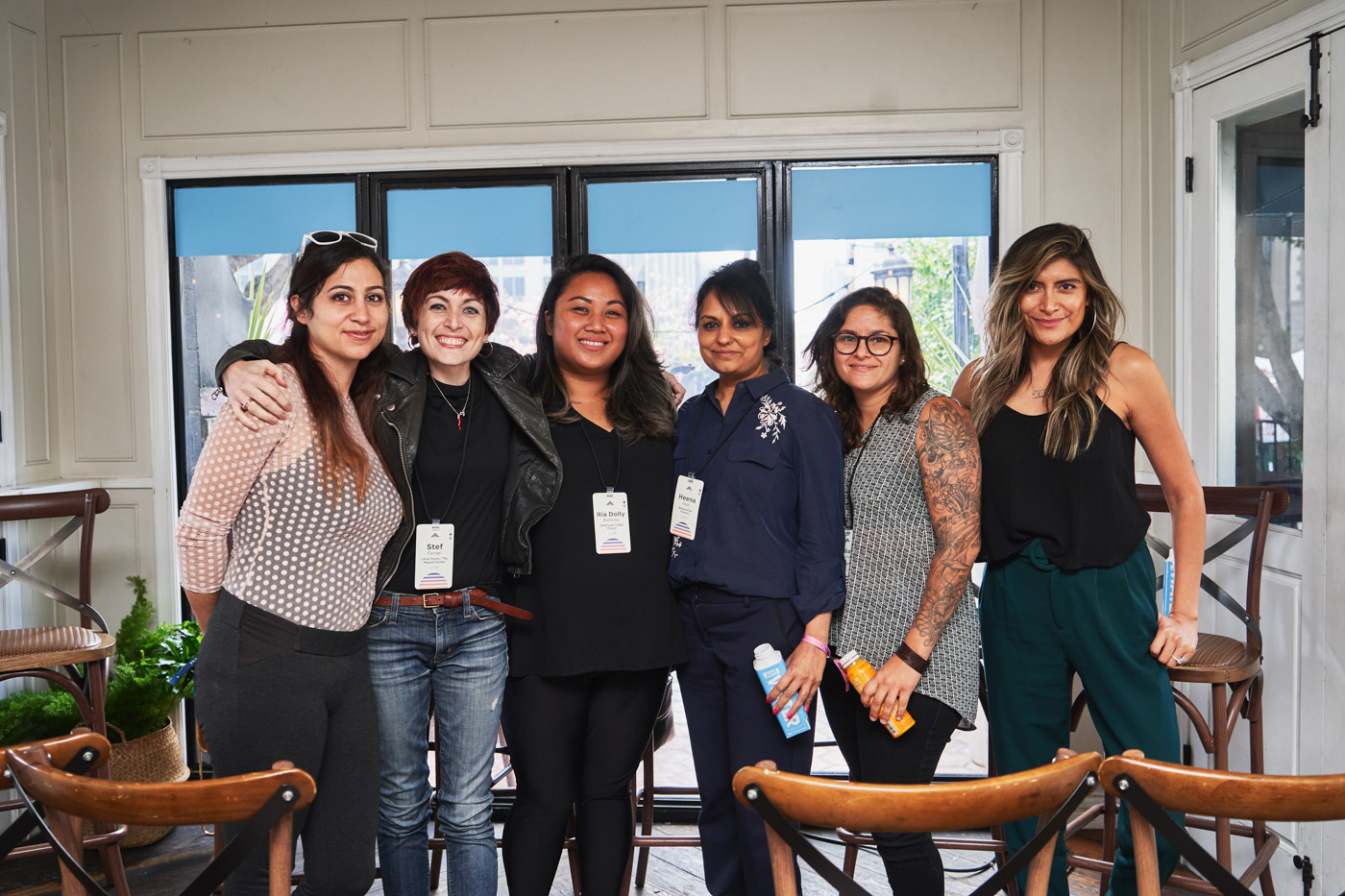

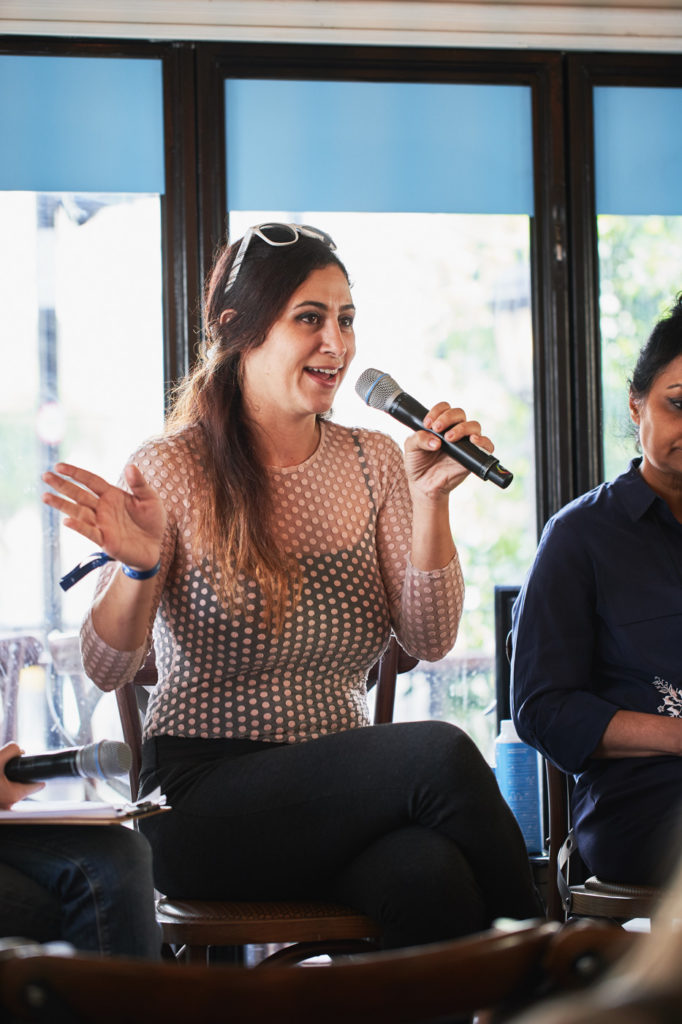
“This year, having so many people comment on how great the food program was is really heartwarming to me,” Haru Kishi, Summit’s executive chef, added. At the start of The Migrant Kitchen dinners, “You had a huge line out the door of about six hundred to seven hundred people.” Ultimately, 1,200 people participated in the dinners each night.
But if the dinners were widely lauded, the other culinary programming struggled at times.
“If it’s a first-year experience,” Rosenthal notes, adding that large scale events take time to dial in. The culinary line-up was no doubt ambitious right out of the gate, but the sparse attendance at some of the talks and panels begs the question: how can the Summit team convince its community of leaders from across various industries to invest in and think deeper about the culinary world? How do they make the case to an attendee paying up to twenty thousand dollars for admission to the weekend, often in hopes of networking and finding leads to help secure funding for their start-up, that this vertical is worth their time?
For chef-activist José Andrés, his message from the Summit stage echoed that of Menache and Rubin: politicians and business leaders must begin to understand the importance of the global food system, and its intersection with nearly every other issue they deal with. However, Andrés further wondered if his words and ideas inspired anyone to “take a leap of faith after connecting A to B.” He asked if idea festivals like Summit and others could be improved by tracking their long-term impact on attendees. Were any businesses formed in response to the speakers’ ideas? Did attendees act upon issues presented to them in any way?
The shift in focus mentioned by Andrés highlights another point—one that extends beyond the Summit community to the rest of us: the ascending cultural relevance of the culinary world.
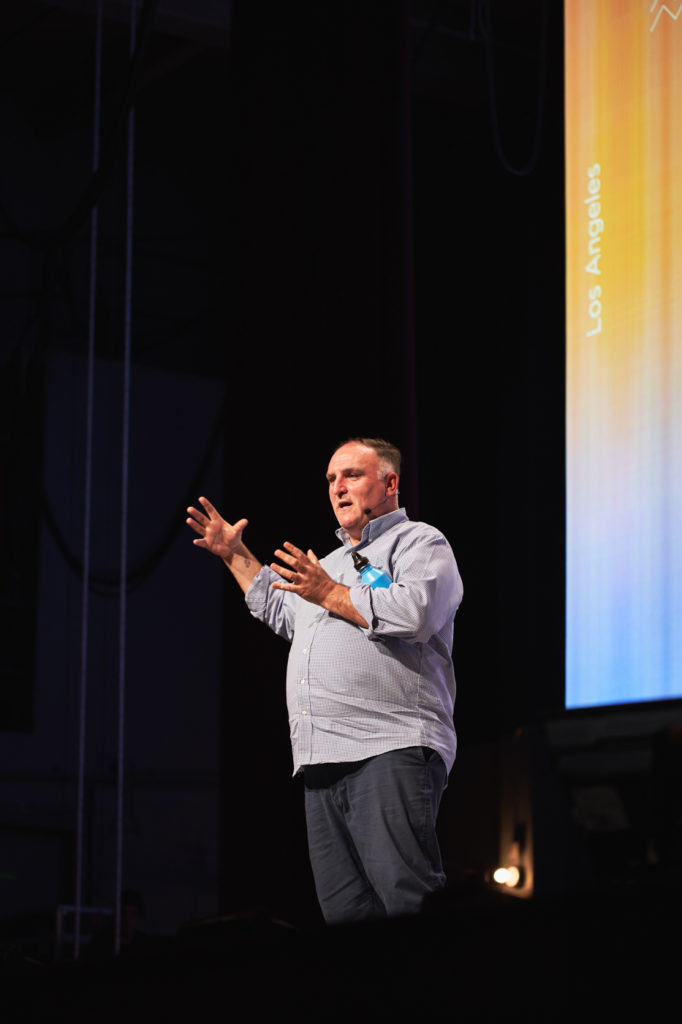
Ultimately, Rubin, Menache and the rest of the Summit team are attempting to key into the power of food, and the centrality of food systems in local and global affairs; Summit 2018 was their first attempt to present that theory to the larger community. Learning to make pasta with a Tuscan nonna is one thing. Discussing the food community’s outsized relationship to, and importance in, a wide range of global topics is something else entirely.
“If we’re in this unique position,” Rubin says, “to collect some of the leaders of the culinary space and just put them at the table with leaders of nation-states, of multinationals, of massive supply-chains, and they can—on their own—begin conversations with the integrity of the future, and the idea of the values and mission of Summit to make some better world from these collisions, that’s our unfair advantage right now.”
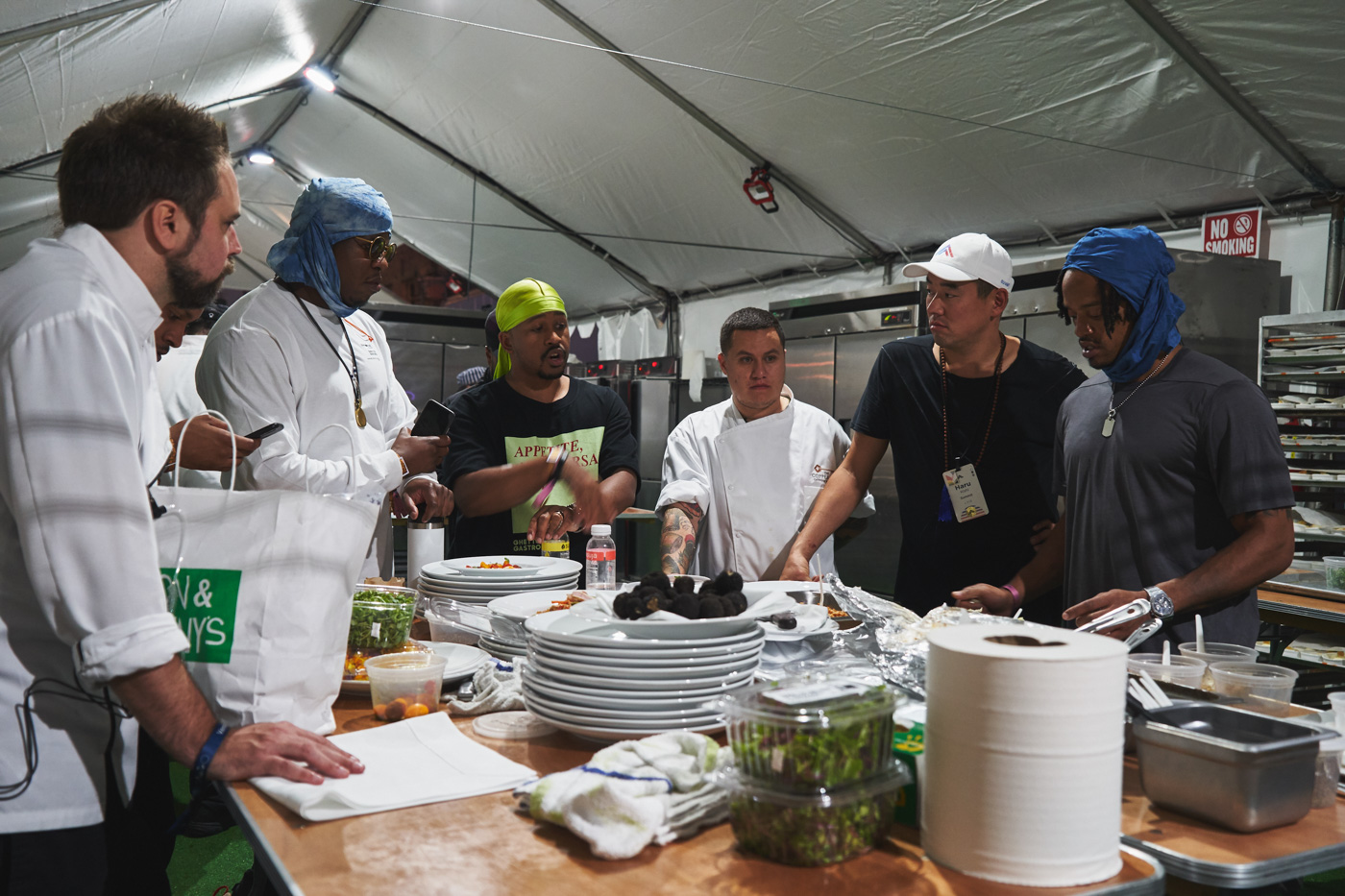
Late on the third night of the 2018 flagship weekend, Rubin calls me over to a small second-floor dining room at the Ace Hotel. The tables are being dressed with bouquets, and chairs are being arranged around a few small wooden tables. In a few minutes, Al Gore and some fifteen other hand-selected attendees will be seated here for a special dinner with Chef Michael Cimarusti highlighting his dock-to-dish seafood program, as carbon-negative wine will be served throughout. A few blocks away, at the roof of the NoMad Hotel, another private dinner was held for Howard Schultz featuring NoMad’s Chris Flint. If these dinners seem intimate and quiet, they offer a glimpse into the massive potential for change Summit enables, done through some of the most influential people in the world.
It’s these connections, and this potential for change that keeps the Summit team motivated. As they shift their focus to 2019, Menache is already planning. “When I think of next year, I think of the ideas and the connections to people, and partners who could be collaborators. There’s no limit to that,” she says. “There is no shortage of people we want to talk to and involve.”
It’s a sweeping vision, and one she is determined to share.

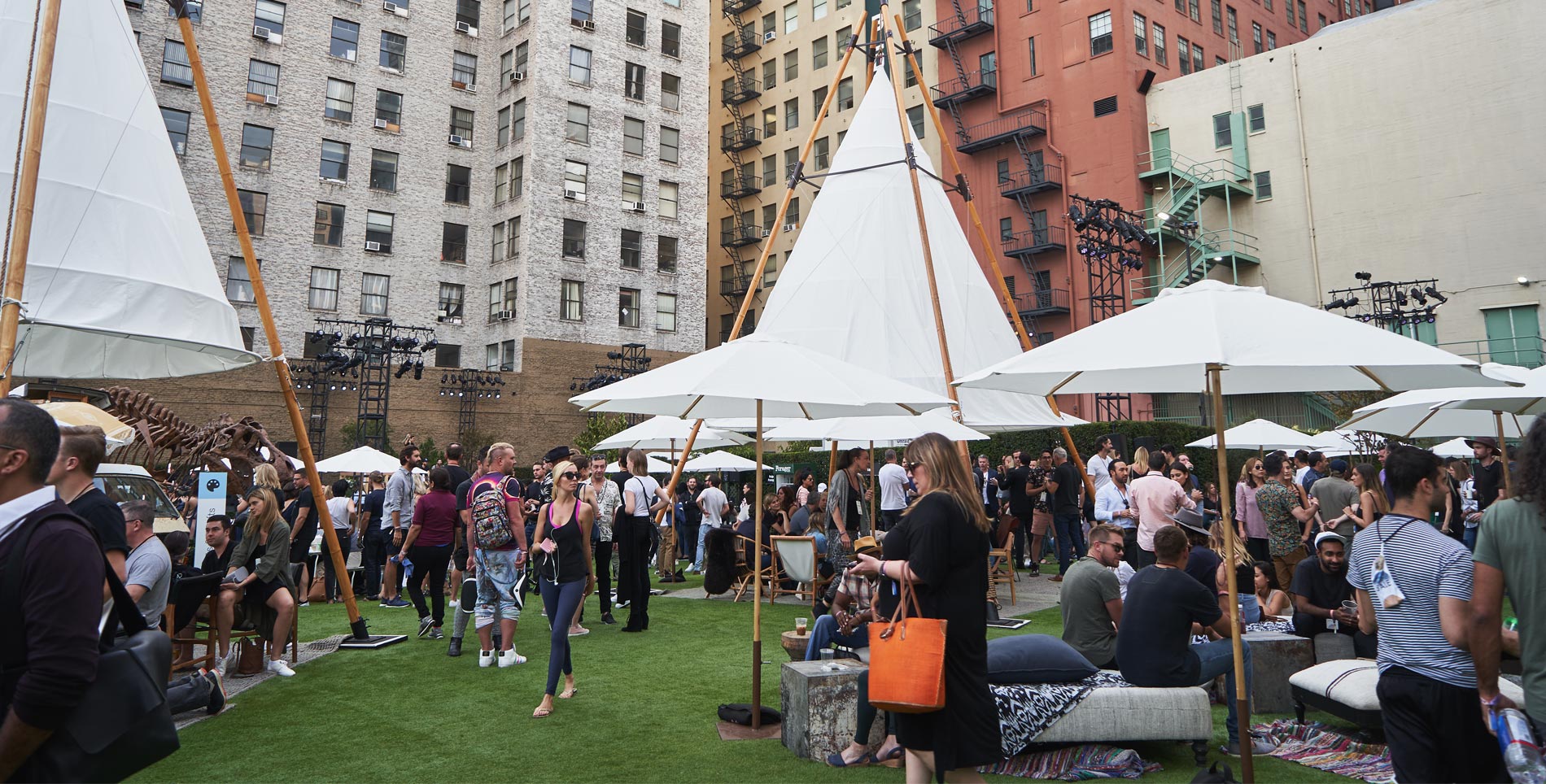

Our comments section is for members only.
Join today to gain exclusive access.